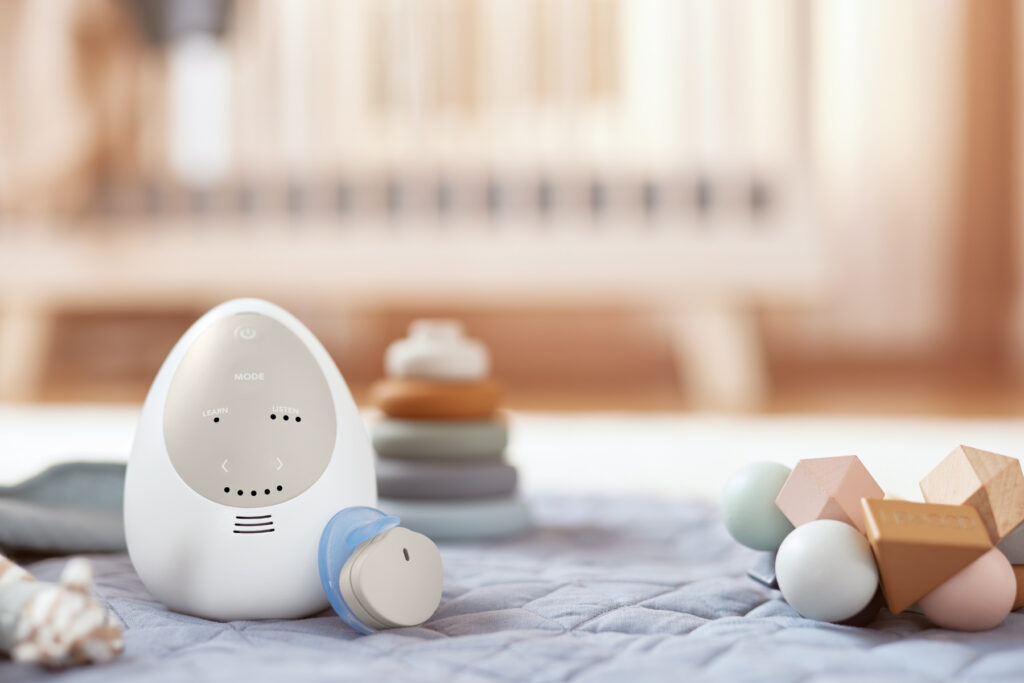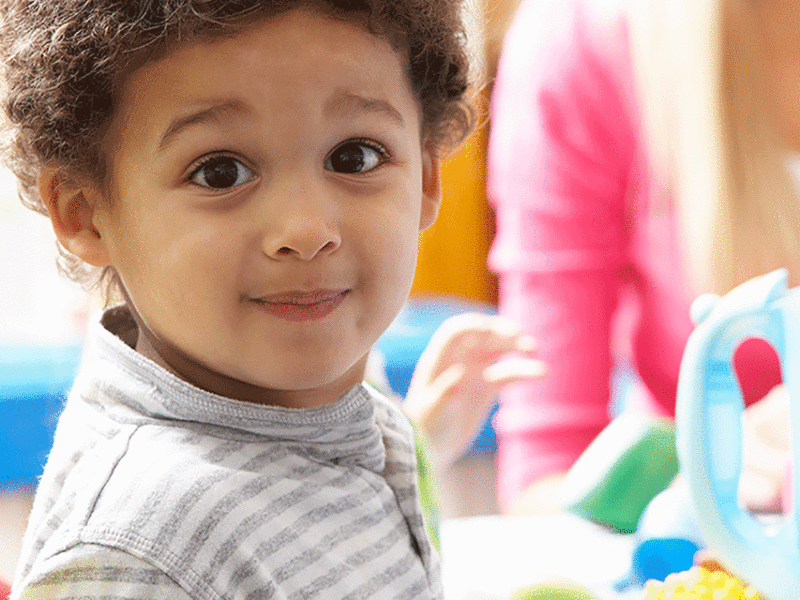Building Baby Brains With smallTalk: From Foreign Language Learning at Home to Bridging Gaps in the NICU
Building Baby Brains With smallTalk: From Foreign Language Learning at Home to Bridging Gaps in the NICU https://pediatricsnationwide.org/wp-content/uploads/2022/01/smallTalk_Egg_3-1024x683.jpg 1024 683 Jessica Nye, PhD Jessica Nye, PhD https://secure.gravatar.com/avatar/?s=96&d=mm&r=g- January 28, 2022
- Jessica Nye, PhD

The best language learners on the planet are children — especially babies. Your brain is most active in creating the language center of your brain, connecting neurons and creating the highways and pathways for processing language, during infancy. In fact, language learning begins in utero. The developing brain of a fetus starts to wire language circuitry around the speech sounds and rhythms of its mother’s voice. This process accelerates when a baby is born.
The brain does more language-associated wiring during the first year of life than any other time in a person’s life. These brain changes occur rapidly as a result of exposure to adult voices speaking to the baby in “infant-directed speech,” characterized by a higher pitch and more melodic, emotional tones.
Ohio-based startup smallTalk (formerly Thrive Neuromedical) is developing the SmallTalk™ platform to enrich the neurological development of babies who don’t have regular, consistent access to their parents’ voices. smallTalk has licensed technology developed at Nationwide Children’s Hospital that delivers recorded voices to infants via devices intended for use in the neonatal intensive care unit (NICU) and at home. These devices support critical brain development for language.
Around 10% of all infants spend some amount of time in the NICU, where they may be exposed to more passing adult speech and sounds of alarms and machinery than infant-directed speech during critical periods for language-associated brain development. This lack of exposure to infant-directed speech may, in part, be responsible for the documented association between NICU care and developmental language delays.
At Nationwide Children’s, where the average stay in the NICU exceeds 100 days, researchers developed and studied an infant-safe, unibody, Bluetooth-enabled speaker device to increase babies’ exposure to their caregivers’ voices with the appropriate sound characteristics to provide a clinical, therapeutic effect. The speaker can easily fit into an incubator and uses technology and volumes that is safe for babies and their sensitive ears.
Beginning this year, nurses and therapists in the NICU will be able to use a specially designed iPad application to help parents or caregivers record lullabies, songs or stories. Playlists of these recordings can be transferred wirelessly to egg-shaped speaker devices placed with the babies in the NICU and played for them several times each day.
The technology has also led to the development of an innovative foreign language learning product, the smallTalk Egg™, designed to help parents plan expose their babies to foreign language learning before age two.
“This is the only time of life when language learning actually helps babies brains develop differently. Infants in bilingual or multilingual household environments develop much broader speech sound recognition capabilities. By 1 or 2 years of age, they’re able to hear and verbalize more speech sounds and adapt to those languages very quickly,” says Dean Koch, CEO of smallTalk.
Infants can be exposed to these songs and stories passively, but studies have shown the most effective changes to the brain occur during interaction. Because the smallTalk Egg™ comes with a sensor device which fits into three different commercially available types of pacifiers, infants can request additional content by sucking on their pacifiers during 20-minute educational sessions. As the infant sucks, they are rewarded with 10 seconds of the foreign language lullaby, which then fades away. The baby recognizes this contingency quickly and will happily engage for a 20-minute learning session.
“Our research on brain imaging and how babies process speech sounds found that 20 sessions of 10-20 minutes over a month or month and a half is all that’s required to make a real, lasting, positive brain change,” says Koch.
The smallTalk Egg™, which will also be available this year, will allow parents and caregivers to bring this brain-enhancing technology into their homes. Currently, content is available in seven languages for use on the smallTalk Egg™, and there are plans to expand to include more languages spoken around the world.
Image courtesy of smallTalk.
About the author
Jessica Nye, PhD, is a freelance science and medical writer based in Barcelona, Spain. She completed her BS in biology and chemistry and MS in evolutionary biology at Florida State University. Dr. Nye studied population genetics for her doctorate in biomedicine at University of Pompeu Fabra. She conducted her postdoctoral research on the inheritance of complex traits at the Autonomous University of Barcelona.
-
Jessica Nye, PhDhttps://pediatricsnationwide.org/author/jessica-nye-phd/
-
Jessica Nye, PhDhttps://pediatricsnationwide.org/author/jessica-nye-phd/
-
Jessica Nye, PhDhttps://pediatricsnationwide.org/author/jessica-nye-phd/January 3, 2022
-
Jessica Nye, PhDhttps://pediatricsnationwide.org/author/jessica-nye-phd/
- Posted In:
- Features










